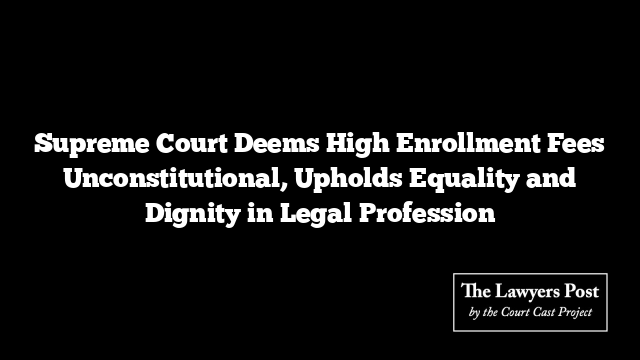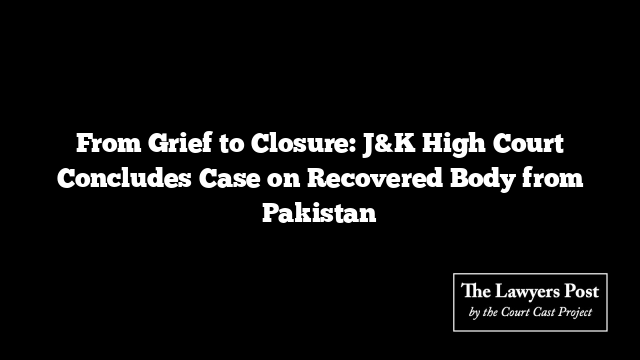In a landmark judgment today, the Supreme Court addressed the issue of prohibitive enrollment fees levied by State Bar Councils (SBCs), ruling that these fees infringe upon the fundamental rights of aspiring lawyers. The Court emphasized that such exorbitant fees undermine the right to a profession and violate principles of dignity and equality.
The bench, comprising Chief Justice DY Chandrachud, Justice JB Pardiwala, and Justice Manoj Misra, decreed that the enrollment fee should not exceed ₹750 for general category advocates and ₹125 for those from SC/ST categories. This decision underscores the critical link between the right to practice law under Article 19(1)(g) and the rights to dignity and equality under Articles 21 and 14.
The Court highlighted the significant barrier posed by high enrollment fees, which disproportionately affect individuals from marginalized and economically disadvantaged backgrounds. By imposing such fees, SBCs create an unfair obstacle to entry into the legal profession, perpetuating systemic discrimination.
“Dignity and equality are integral to the right to choose a profession and to pursue a livelihood,” the Court noted. “Exorbitant fees serve as a deterrent, particularly for those from underprivileged sections, thus compromising their opportunity to enter and succeed in the legal field.”
The Court condemned the SBCs’ practice of charging fees that exceed the limits set by the Advocates Act of 1961, calling it “manifestly arbitrary” and contrary to the principles of substantive equality. The Advocates Act specifies maximum fees of ₹600 and ₹150 for general category advocates, and ₹100 and ₹25 for SC/ST advocates, respectively. Some states, however, charge up to ₹40,000, which the Court found to be excessively high.
In reinforcing the need for inclusivity, the Court reminded that the Advocates Act aims to create a representative legal profession. Arbitrary fee structures undermine this goal and create economic barriers for aspiring lawyers. The judgment stresses that Bar Councils must adhere to legislative policies that promote an inclusive and equitable legal profession.
Drawing on previous cases, the Court reaffirmed that any fee structure imposed must align with legislative intent and not place unreasonable restrictions on fundamental rights. The judgment reinforces that the right to practice law, while subject to reasonable regulations, should not be compromised by arbitrary financial burdens.
This ruling marks a significant step toward ensuring that entry into the legal profession remains accessible to all, irrespective of socio-economic status, thus upholding the constitutional values of dignity and equality.





